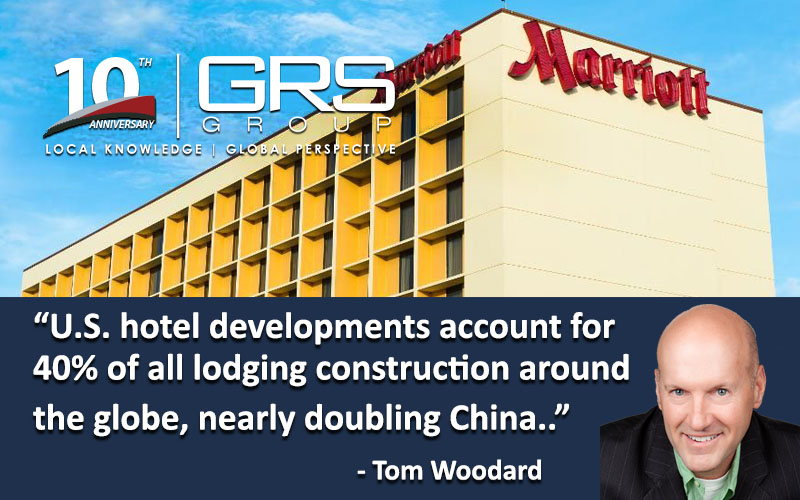There are a lot of investors out there hoping that any economic downturn that might be headed our way steers very clear of commercial real estate’s hotel sector.
In the United States, 5,653 projects are under construction, totaling a whopping 693,207 rooms. That’s just 230 developments less than the all-time high, which was reached in 2009, according to a recent report by Lodging Econometrics.
U.S. hotel developments account for 40 percent of all lodging construction around the globe, nearly doubling China, with the second most, with 2,991 projects.
Four of the top five cities in the world for hotel construction are in the United States, with the exception of first place, which is Dubai, with 173 projects. Rounding out the list, in order, is New York City (166), Dallas (162), Los Angeles (158), and Houston (146).
By company, Marriott International is the leader, with 2,534 projects, followed by Hilton Worldwide, with 2,334, and InterContinental Hotels Group, adding 1,769. IGH’s Holiday Inn Express has the most of any brand, with 737 hotels underway, and second is Hampton by Hilton, with 689 projects.
The bulk of this development is a bit in contrast to the PwC/ULI Emerging Trends in Real Estate 2020 report, which says: “This asset class is generating cautious optimism among investors, both from a return-on-investment and a development perspective.”
The reasons for the slowdown, at least in investor sentiment found in the annual survey, is an expected slowdown in hotels’ fundamental metrics, including RevPAR (revenue per available room), ADR (average daily rate) and occupancy rates. Some investors said in the survey that they think occupancy has reached its peak in the economic cycle, due to a lag in large-group bookings, over supply and other factors.
The potential economic trends that investors fear right now are a decline in GDP growth, rising labor costs, slowed consumer spending and added pressure from tariffs and the trade war with China.
But the PwC/ULI report also pointed to some bright spots in the hotel sector. Operators are cutting costs by relying on digital technology, such as artificial intelligence to assist in room-service orders. Some owners are getting in on the co-working trend and renting lobby space for flexible offices. And companies are offering more brands, giving them the feel of boutique operations.
Hopefully this round of heavy construction underway in the hotel sector won’t spell a glut of oversupply, and developers took a potential downturn into consideration before breaking ground on their projects.
About GRS Group
GRS Group is a leading provider of commercial real estate (“CRE”) services worldwide. With offices across the United States, Europe, and affiliates around the globe, GRS Group provides local market knowledge with a global perspective for institutional real estate investors, occupiers and lenders worldwide. The GRS Group team has evaluated and advised on over $1 trillion in CRE transactions.
Through the company’s proprietary management process, Global Services Connection, GRS Group delivers an integrated suite of services including Financial Advisory, Transaction Management, Assessment and Title Insurance. We provide a single point of contact, capable of leveraging the GRS Group portfolio of companies and delivering customized solutions to assist our clients in achieving their investment goals.

